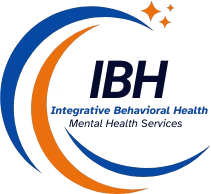Are you struggling with relationship issues but can’t quite put your finger on what’s going wrong? Do you find yourself repeating the same patterns in your romantic life, friendships, or even family dynamics? What if the key to unlocking healthier, more fulfilling relationships could be found in something as simple as understanding your attachment style?
In this article, we’ll explore how attachment styles impact mental health and relationships and how you can use this knowledge to build deeper, more meaningful connections. No matter your age or where you are in your relationship, these insights can drastically change the way you relate to others, setting you on a path toward healthier, more secure relationships.
Why Attachment Styles Matter
Our attachment style, formed in childhood, shapes how we respond to intimacy, trust, and closeness throughout life. These patterns can deeply affect our emotional well-being and the quality of our relationships. Here’s the kicker: you may not even know you’re stuck in a cycle from your childhood!
By discovering your attachment style, you can gain invaluable insight into your emotional triggers, how you respond to conflict, and why certain behaviors or situations create negative reactions in your relationships. Whether you lean toward a secure, anxious, avoidant, or disorganized attachment style, recognizing these patterns can be the first step toward healing and transforming your relational experiences.
Mental Health Focus: The link between attachment styles and mental health is real. Anxiety, depression, and even self-esteem issues are often closely tied to how secure or insecure we feel in our relationships. Identifying and addressing attachment patterns can significantly reduce emotional distress and improve overall mental and emotional wellness.
Unlock the Secret to Healthier Relationships
1. Understand Your Emotional Triggers Ever notice that certain behaviors from others, like delayed text responses or a partner being emotionally distant, send you spiraling out of control? These reactions are often rooted in our attachment style. Discovering whether you have an anxious, avoidant, or secure attachment style can help explain why these situations hit so close to home.
2. Improve Communication with Loved Ones Attachment styles don’t just affect romantic relationships, they shape how we communicate with everyone in our lives. If you’re someone who avoids emotional closeness or constantly craves reassurance, it’s no wonder that misunderstandings arise. By learning about your attachment style, you’ll be better equipped to communicate your needs clearly and effectively.
3. Build Trust and Emotional Intimacy If you’ve ever struggled to build trust or felt like emotional intimacy is subtle, understanding your attachment style can shed light on these difficulties. The good news? These patterns aren’t set in stone. Once you recognize them, you can start taking steps to build secure, trusting relationships where both you and your partner feel safe and supported.
Call to Action: Take Charge of Your Relationships Today!
Your relationships don’t have to be a source of frustration or pain. Imagine what it would feel like to finally break free from toxic patterns and experience deeper, more fulfilling connections!
If you’ve made it this far, you’re already one step closer to transforming your relationships and mental health. Remember, understanding your attachment style is about more than just categorizing yourself, it’s about gaining insights that will help you lead a happier, more secure life, both emotionally and mentally. By taking charge of your attachment style and making small changes in how you approach relationships, you can break free from negative patterns and cultivate relationships that nurture your well-being.
I’ve created a comprehensive workbook designed specifically to help you explore your attachment style, identify your triggers, and develop healthier relationship patterns. This workbook will guide you through self-assessments, reflective exercises, and practical tools that can be used in everyday life to improve your mental health and relational well-being.
This workbook is FREE to the first 100 people. Click below to download your copy now,
